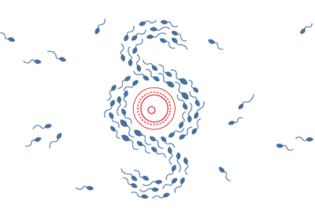Topic in Focus
Reproductive Medicine: Need for Regulation and Discussion

Illustration: Sisters of Design
Egg donation, embryo donation, surrogacy - many things are possible in reproductive medicine today. In Germany, however, several of the new procedures are prohibited by the Embryo Protection Act, while others are not legally regulated. Experts say that the law, which dates back to 1990, no longer does justice to medical and social developments due to its purely penal nature. A debate on legal, medical, ethical and psychosocial aspects is long overdue.
Louise Brown was born in England in 1978. The first baby to be conceived by artificial insemination. A sensation: a human embryo outside the womb, that had never been done before. Nowadays, more than 100,000 artificial inseminations are carried out in Germany every year - more frequently among homosexual or single women.
The freedom of reproduction is anchored in the German constitution and a ban of certain reproductive methods must therefore be substantiated by the state. However, some German couples make use of banned methods such as egg donation or surrogacy abroad. Other measures, such as embryo donation, are largely unregulated.
“If feared risks fail to materialize, the legislator must include them in its considerations.”
Information and clarification
Beyond a new legal regulation, however, it is also a matter of initiating a broad social debate on the subject of reproductive medicine.
“Educate the population so this taboo and stigma can be broken down.”
In order to enable women, men or couples to make a good decision ("informed consent"), extensive, independent information is required. However, experts criticize the lack thereof. It is alleged that hospitals and centers do not deal honestly enough with the success or failure of treatments, that there is no state register, no research and no reliable figures on methods used in Germany.
“Unfortunately, we in Germany have to have considerable doubts about that.”
“At the moment we can only refer to research from abroad.”
What would a law on reproductive medicine have to achieve?
Since Germany’s Embryo Protection Act was passed in 1990, assisted reproduction has developed at a rapid pace worldwide and provided new diagnostic and therapeutic measures to aid fertility. The health of all those involved, in particular the children, must always lie at the heart of these treatments. Thanks to high-quality medical and social science studies, reliable empirical statements concerning the effectiveness and tolerability of these technologies can now be made in many areas. Social concepts of marriage and family have also changed over the last 25 years. In addition, the rights and welfare of children are given greater consideration nowadays.
Many of these developments could not have been predicted at the end of the 1980s. It is therefore all the more important to have new and comprehensive regulation of the requirements, processes and consequences of reproductive medicine, regulations that offer those involved the best possible and least invasive treatment, and gives due consideration to the rights of all parties, including the future children.
“We accept that children are deprived of rights which they have under German law.”
Published: May 2019
